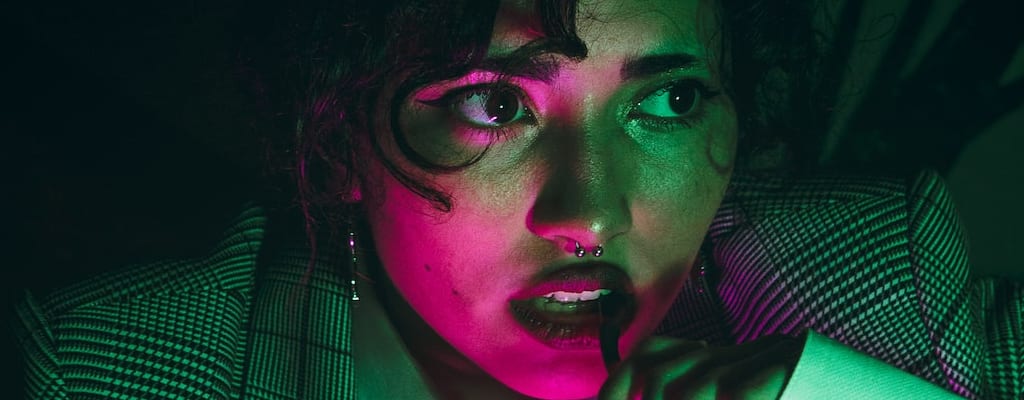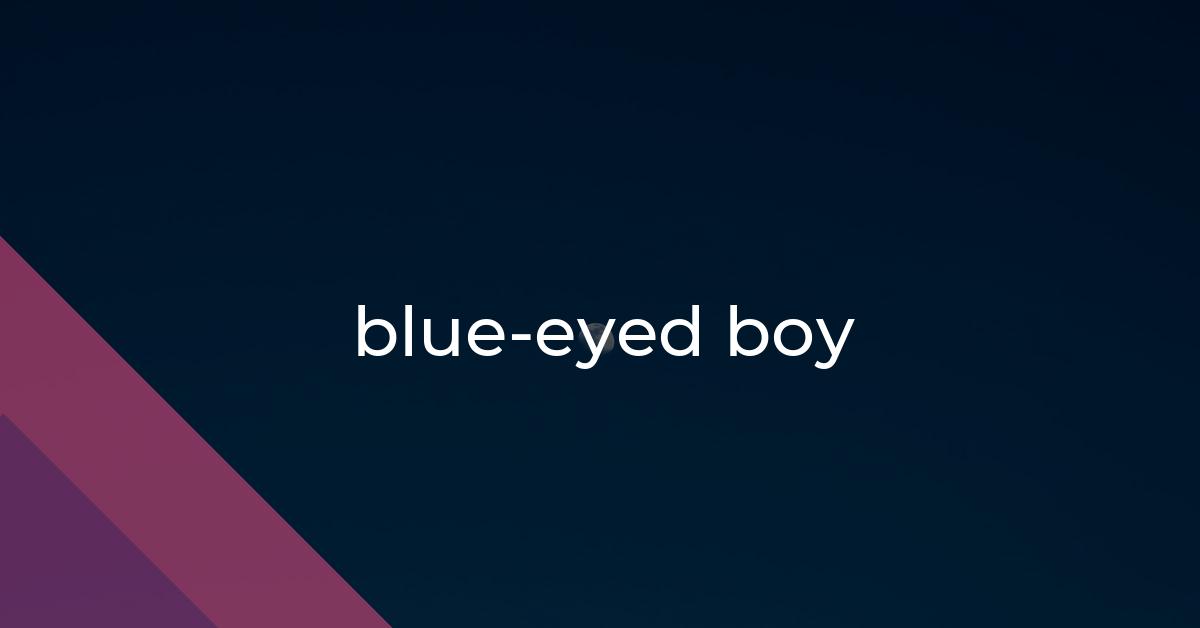blue-eyed boy: Idiom Meaning and Origin
What does ‘blue-eyed boy’ mean?
The idiom "blue-eyed boy" refers to someone who is highly favored or regarded in a particular group or organization.

Idiom Explorer
An idiom meaning an individual or thing that is the most impressive or influential among others in a given field or situation.
The idiom "green with envy" is used to describe someone who is extremely jealous or envious of someone else's success or possessions.
The idiom "gooseberry eye" refers to a person feeling left out or excluded when in the company of a couple, often in a romantic setting.
The idiom "good old boy" refers to a person, typically a man, who is seen as trustworthy, loyal, and part of a close-knit community or group. It often implies that this person follows traditional values and has influence or connections within that community.
The idiom "good looker" refers to a person who is physically attractive or visually pleasing.
The idiom "good books" refers to being in a position of favor or under the protection of someone influential or powerful. It implies that the person is in a positive and secure state, likely due to their relationship with someone important.
The idiom "give someone the eye" means to look at someone in a way that shows interest or attraction. It is often used to describe a flirtatious or seductive look.
An idiom that signifies something or someone considered to be a great blessing or stroke of luck, often seen as a divine or fortunate occurrence.
Enigmatic Charm
The idiom "blue-eyed boy" is used to describe someone who is favored or held in high regard by a person or group. The term "blue-eyed" comes from the color of one's eyes, which are often associated with innocence, trustworthiness, and attractiveness. The use of this term in the idiom suggests that the person being referred to is seen as special, admired, or in a privileged position.
One theory suggests that the idiom may have originated from the biblical reference to Jacob's son Joseph, who was described as his father's favorite son. Joseph was given a coat of many colors, which symbolized his favored status. This association of being favored and receiving special treatment may have led to the usage of "blue-eyed boy" in a similar context.
The idiom is commonly used in both formal and informal settings to describe individuals who are highly regarded. These individuals may have a close relationship with a person in authority or possess exceptional abilities or qualities. The idiom is frequently used in politics, business, and other fields where influence and favoritism can play a significant role.
The idiom is not limited to the United States and can be found in various English-speaking countries. However, its usage may vary slightly, and there may be regional variations or alternative expressions that convey a similar meaning.
The idiom "fair-haired boy" is closely related to the idiom "blue-eyed boy." Both idioms refer to individuals who are favored or held in high regard. The term "fair-haired" is often used metaphorically to describe someone with light-colored hair. This idiom suggests that the person being referred to is seen as special or privileged, similar to the connotations of the "blue-eyed boy" idiom.
The idiom "apple of someone's eye" is also related to the idiom "blue-eyed boy." Both idioms imply a strong sense of admiration or affection towards a particular individual. The phrase "apple of someone's eye" is an old expression that refers to something or someone that is highly cherished or loved. This idiom conveys a similar sentiment to the idea of someone being a "blue-eyed boy."
While the idiom "blue-eyed boy" generally has positive connotations, it can also be used sarcastically or ironically. In these cases, the idiom may suggest that someone is being overly favored or given undue advantages. This usage can imply negative implications of nepotism or favoritism, particularly in contexts where fairness and equal opportunities are valued.
Overall, the idiom "blue-eyed boy" represents the admiration and favored status of an individual. This admiration can be attributed to their close relationship with a person in authority or their exceptional qualities. The origins of the idiom can be traced back to biblical references, and its usage is widespread in various fields and English-speaking countries. Whether used positively or ironically, the idiom captures the complex dynamics of favoritism and privilege.
Example usage
Examples of how the idiom "blue-eyed boy" can be used in a sentence:
- He always gets the best opportunities at work because he is the boss's blue-eyed boy.
- Since he is the coach's blue-eyed boy, he is always picked as the team captain.
- The teacher tends to give the blue-eyed boy special treatment, which can be unfair to the other students.
More "Favorites" idioms
We missed the mark - nothing found.



